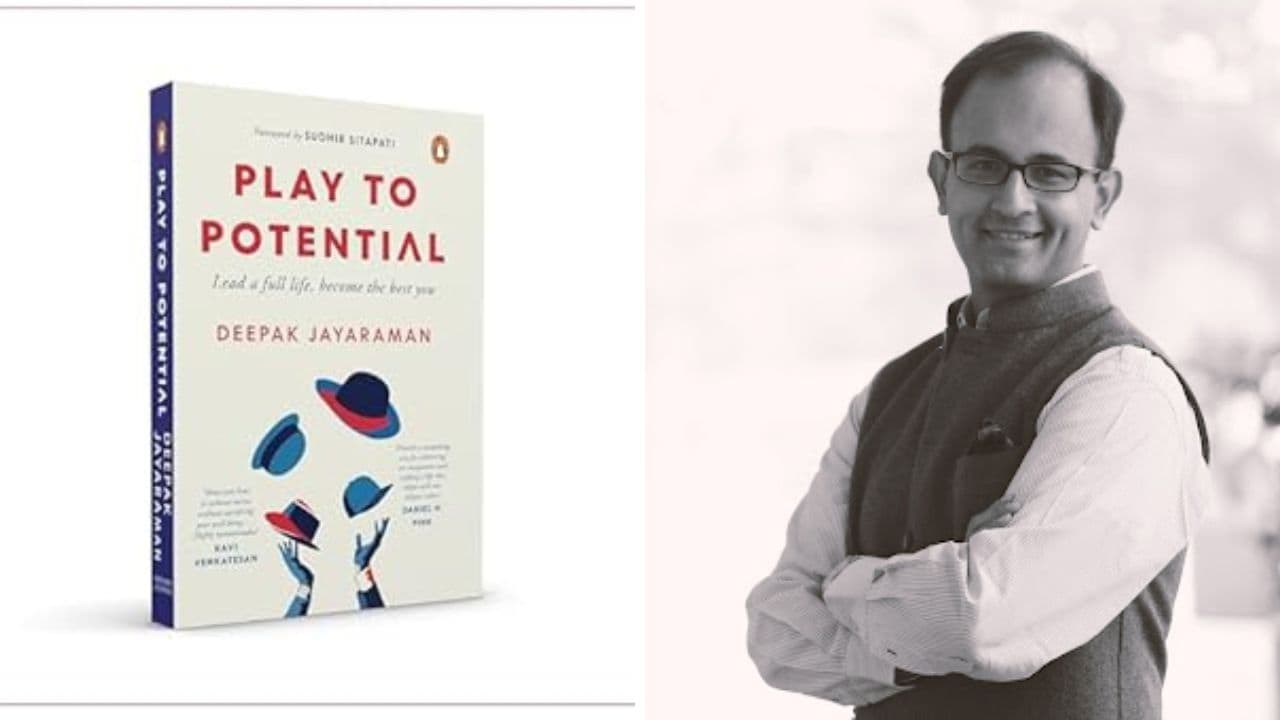Is Ikigai too hard to implement?
If reports are to be believed, the self-improvement market is expected to reach $81.6 billion globally, by 2032! This includes personal coaching, books, audiobooks, institutes, personal development apps, retreats and motivational speaking assignments.
The main driver for success in the self-help industry is one word- credibility. And even a casual look at the book ‘Play to Potential’ will reveal that its mild-mannered author Deepak Jayaraman, has prioritised ‘trust’ over all else. There are a whopping 41 testimonials in his book, many of them personal. Explaining that ‘ikigai’ may be utopian, he proposes a ‘FLAVOUR’ approach. Jayaraman explains, “Trust is crucial. Do you want to see your cardiologist advertising himself? Probably not!”
About the decision to write the book, he adds, “Where do I start the clock? I started thinking of writing ‘Play to Potential’ in 2016. But I wrote it over 18 months between 2023-24,” confesses Jayaraman.
Here are our five Bookstrapping insights from conversations with the author –
1. Jayaraman says that this is a book for leaders who seek work-life balance. What about those on the cusp? “The seed of this book and the classification of people into Type 1 and Type 2 was inspired from ‘Give and Take’ by Adam Grant. However, I’d like to believe that playing to potential is age, level and tenure agnostic. It’s about how you frame your approach to life?
2. What is the definition of potential? “He did what he could with what he had,” is the definition from a conversation with Vijay Amritraj. But how does one estimate potential? “I look at what is and generally talk to the mentee’s spouse, siblings, parents, friends because workplace feedback is just one data point. I like to see the whole person!”
3. The chapter ‘What Lies Beneath’ has ten interesting prompts for self-enquiry. “These were developed over time, over many podcasts and conversations. Another book that influenced me was Dan Gable’s ‘Exceptional- Build Your Personal Highlight Reel and Unlock Your Potential.’ Is meditation enough? To emerge from our blindspot and unlock potential? Back in my McKinsey days, one of my mentors asked, ‘you seem to have a passion for people. Have you thought about executive search?’ Could I have arrived at this myself? Perhaps not.”
4. Another powerful concept in the book is to ‘pause across timescales.’ Akin to chess, where the players take a break after move 40, the pause helps to reflect. And these pauses can be opportunistic too. “My daughter was doing a camp in Himachal in her grade 9 and I squeezed a break for myself in the middle of parental duty, to imagine the framework of this book!”
Read More: Bookstrapping: Think Like a Minimalist by Chirag Gander and Sahil Vaidya
5. An important insight in the book is to cultivate three kinds of networks. Personal (friends and family), Operational ( to get the job done) and Transformative ( 2nd or 3rd degree networks). Most of our new referrals come from the third network- what we call acquaintances and these are extremely important.
The book delves into important roadblocks- such as asymmetry of power leading to silence. Jayaraman asks, “How safe is it to give feedback to your boss? The point is- very often we are a poor judge of how safe it is and we don’t see the whole picture. Theres a book by Brain Grazer called ‘The Curious Mind’- about curiosity being the “secret” that fueled his own riseI You have to explore beyond the obvious.”
Reeta Ramamurthy Gupta is a columnist and bestselling biographer. She is credited with the internationally acclaimed Red Dot Experiment, a decadal six-nation study on how ‘culture impacts communication.’ Asia’s first reading coach, you can find her on Instagram @OfficialReetaGupta
